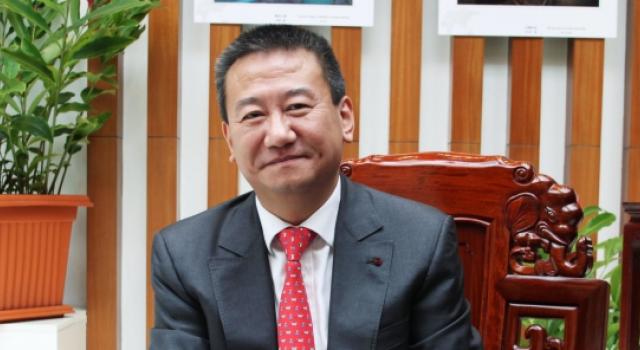The international community should rally behind efforts to contain the COVID-19 pandemic and other external shocks that could threaten long-term stability in Africa’s Great Lakes region, a UN envoy said on Friday, April 24, 2020.

Xia Huang, the Special Envoy of the United Nations Secretary-General for the Great Lakes region, said the fight against COVID-19 is imperative to help achieve peace, security and prosperity in the resource endowed region.
“The Great Lakes region today faces challenges exacerbated by the COVID-19 pandemic and the prolongation of the Ebola epidemic,” Xia told Xinhua during an interview in Nairobi, Kenya.
“Indeed, the fight against the pandemic could be an opportunity to build greater solidarity and strengthen regional collaboration,” he added.
Xia said that the region has in the recent past made significant progress towards political stability, economic growth and social cohesion, adding that tackling COVID-19 pandemic and other emerging shocks will ensure those gains are not reversible.
He singled out the peaceful political transition in the Democratic Republic of the Congo (DRC) and the commitment by leaders of the countries of the region to promote peace, security and economic integration as significant positive developments for the region.
“However, it should be mentioned that the stabilization of the region depends on several other variables, including external shocks related to COVID-19 pandemic, progress in the fight against armed groups in eastern DRC, and effective cooperation between the countries of the region to address the root causes of instability,” said Xia, who further stressed that he was committed to supporting the countries of the region to tackle these challenges, in line with his mandate and in concert with regional partners.
During his address to the UN Security Council on Wednesday, the Special Envoy said the Great Lakes region has witnessed a modest spike in COVID-19 cases compared to other regions, adding that containment measures like curfews, ban on international flights and border closures were rolled out in a timely manner.
“Although encouraging, these measures should be bolstered,” Xia told the UN Security Council.
“The countries of the region, some of which are emerging from decades of conflicts, will need the steadfast and resolute support from members of the international community, in order to deal with and recover in a sustainable manner from the pandemic and its consequences,” he added.
More than 4,766 COVID-19 cases and about 131 deaths have been reported in the Great Lakes region, according to the latest updates from the World Health Organisation (WHO).
Xia said the pandemic has impacted negatively on public health and critical sectors of the economy like tourism, agriculture and extractive industries.
He hailed commitment by governments in the Great Lakes region to combat the virus that has paralysed economic activities leading to job losses.
“Governments in the region are trying to develop solid actions to support their economies in a concerted manner. Increased support from the international community to deal with this crisis will be necessary,” said Xia.
He said multilateral institutions are coordinating with national and regional actors to strengthen the response to COVID-19 pandemic with a special focus on vulnerable demographics.
